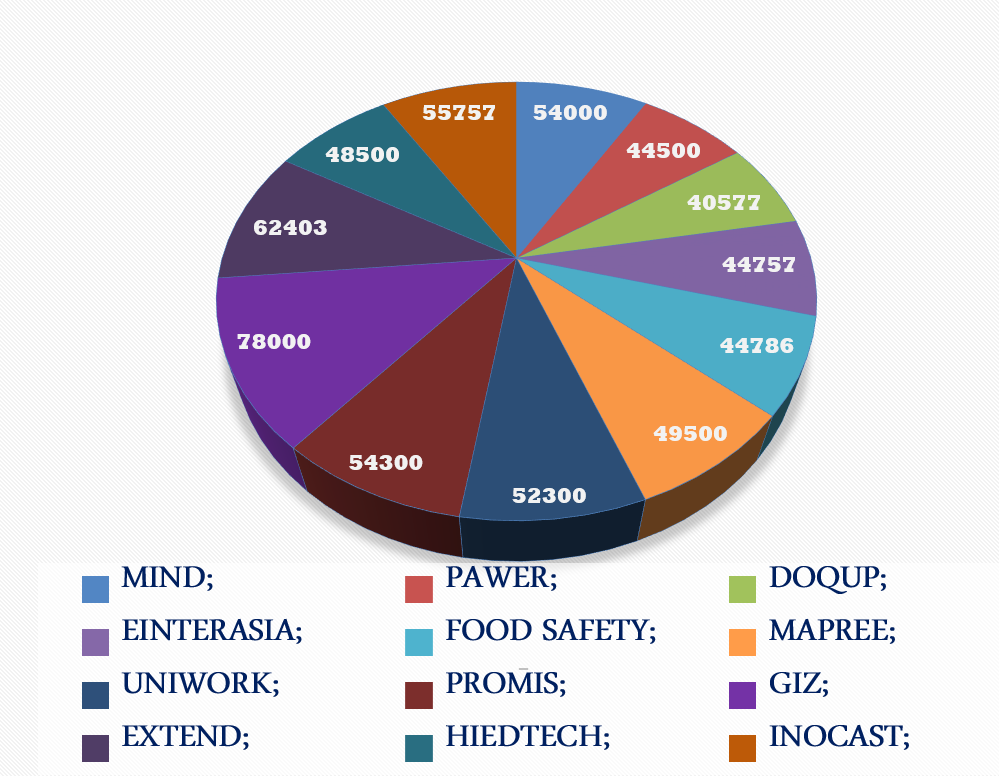Department of International Relations is an independent unit and an integral part of the structure Technological University of Tajikistan through which is being implemented the concept of social legal protection of students and staff, as well as the international activities of the university. In the governance structure of the department there are two sub-departments: Office of International Relations: orphans and disabled students, development of international innovation projects.
International Relation Office
The Office of International Relations was established in 1992 with the purpose of promotion and strengthening university relations with foreign higher educational institutions.
Main directions of the activities:
Establishment of effective and sustainable collaboration with foreign HEIs;
Working with embassies, international organization located in the Republic of Tajikistan;
Elaboration and submission project proposals to international grant programs.
Development of memorandum of understanding and cooperation agreements for cooperation with HEIs in the sphere of education and sciences;
Development of memorandum of understanding and cooperation agreements for cooperation with international organizations inside and outside of the Republic of Tajikistan;
Regular control of implementation signed agreements between TUT and foreign HEIs;
Regular control of foreign students, teachers and researchers’ activities at TUT;
Visa support to foreign visiting scholars, students and researcher at TUT;
Attraction of foreign professors, teachers and researchers.
Establishing cooperation in the frame of Erasmus +, FP7, Horizon 2020 programs of the European Commission.
In addition, in the structure of the Office of International Relations exists of development of international innovation projects, in the frame of which are being done the following activities:
- Finding grant programs and projects, international funds;
- Elaboration of joint innovation projects in the sphere of education, professional trainings and development of specialists’ qualifications in terms of using modern technologies;
- Presentation and introduction of the international grant projects;
- Development and submission of international innovative grant project proposals.
Furthermore, Technological University of Tajikistan signed cooperation agreements with a number of HEIs of the world, particularly with Riga Technical University, Latvia, Latvian Agrarian University, The College of New Jersey, USA, Otto von Guericke University, Magdeburg, Germany, Nanjiing University, China, University of Textile and Clothing Technology, Germany, University of Nebraska, USA, Humboldt University, Germany, Moscow Industrial State University, Ivanovo Chemical-Technological State University, Ivanovo State Textile Academy, Kostroma State Technological University, Kostroma State Technological University, Kostroma State Agricultural Academy, Ivanovo State Agricultural Academy, Voronezh State Technological University, Orel State Polytechnic University and with Ukrainian higher educational institutions, Ternopol State Technical University named after Puluy, Kiev National University of Design and Technology, Kiev State University of Construction and Architecture.
According to the cooperation agreements, a number of research projects have been carried out, students and teachers have been exchanged with the aim of internships and participation in symposia and joint conferences. During this time, 1280 Tajik students from among TUT students studied at universities of the Russian Federation, Commonwealth of Independent States (CIS) and other foreign countries.
As part of a bilateral agreement between TUT and Polotsk State University of the Republic of Belarus, from September 1, 2019, a joint faculty has been operating at the Technological university of Tajikistan, where s are prepared pecialists in two areas: 1360701-Machines and apparatuses of chemical industries and building materials enterprises and 1700501-Designing, construction and operation of gas and oil pipelines and gas and oil storage facilities.
Study in this faculty is carried out in two stages: the first two years at the Technological University of Tajikistan, and the next two or three years at Polotsk State University of the Republic of Belarus.
Cooperation in the frame of the international grant projects that are being implemented at the Technological University of Tajikistan
Erasmus Mundus Projects of the European Commission
MARCO ХXI
CANEM II – « Central Asian Network of Economics and Management»
TEMPUS Projects of European Commission
DOQUP – «Documentation for Quality Assurance of the Study Programs» MAPREE – «Master programs on Renewable Energy and Energy Efficiency in Buildings in Central Asia and Russia»
INNOCAST – «InnoLabs in Central Asia for a sustainable innovation catalyzation in the Knowledge Triangle» UNIWORK- «Strengthening Career Centers in Central Asia Higher Education Institutions to empower graduates in obtaining and creating quality employment»
PROMIS – «Professional network of Master’s degrees in Informatics as a Second Competence»
MFQSE –«Modernisation of higher education in the area of food quality and safety in Tajikistan»
FP7 Project (Seventh Framework Program) of European Commission
eINTERASIA – «ICT Transfer Concept for Adaption, Dissemination and Local Exploitation of European Research Results in Central Asian Countries»
Cooperation with Germany
GIZ- «German Organization for International Cooperation»
GIZ Project «Professional education and training in Central Asia I»
LOGO.eV- Public Organization «Agricultural and Ecological Balance with Eastern Europe»
It must be noted that in the results of the close cooperation with HEIs abroad and active participation in the grant projects more than 200 teaching staff and 50 students have undergone trainings, professional development course and received internationally recognized certificates and diplomas. In addition, from the budget of the grant projects implemented and being implemented there have been purchased equipments and teaching materials that are being efficiently used in the education process at the university.
EN

